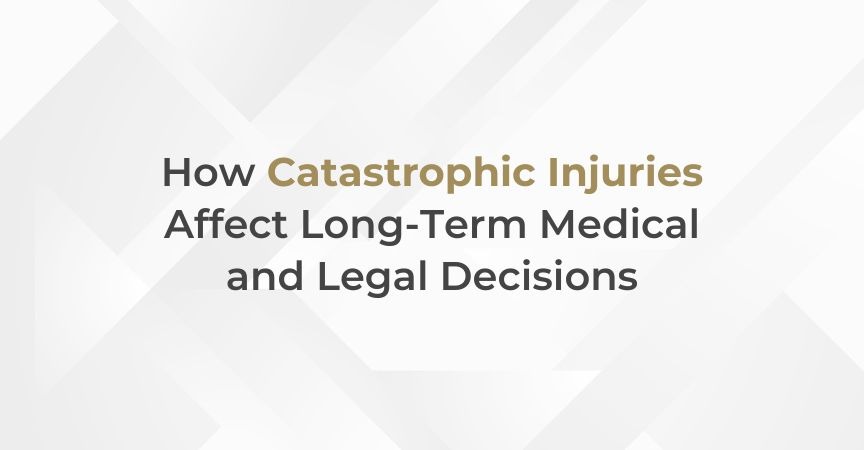Catastrophic injuries are severe injuries that involve physical and cognitive impairments that can last a lifetime. The long-term impact of catastrophic injuries is life-altering and requires financial obligations that can last for the rest of the victim’s life (if not longer). It is crucial to understand how catastrophic injuries affect long-term medical and legal decisions; working with an experienced catastrophic injury attorney is imperative to get the compensation you need to survive.
What Is Considered A Catastrophic Injury
A catastrophic injury is similar to a personal injury, but with far more severe consequences. While both can result in pain, medical bills, and disruption to daily life, catastrophic injuries typically lead to long-term or permanent disability, requiring extensive medical care, rehabilitation, and support. This distinction is what sets catastrophic injury vs. serious injury apart; the scale, scope, and impact on the victim’s future are significantly greater. Common examples of catastrophic injuries include, but are not limited to:
- Severe burns
- Amputations
- Spinal cord injuries/paralysis
- Traumatic brain injuries (TBIs)
These types of injuries often prevent individuals from returning to work, limit their independence, and create emotional and financial burdens that can last a lifetime.
Long-Term Effects of Catastrophic Injuries
With most injuries, short-term medical expenses are guaranteed, with emergency room visits, surgeries, intensive care unit (ICU) stays, diagnostic imaging such as CT or MRI scans, and initial hospitalization following the injury. Due to the impact on daily life and independence, there are many long-term impacts of catastrophic injury that include future medical needs as well as psychological impacts:
- Long-Term Medical Expenses: Continued physical, occupational, and speech therapy; follow-up surgeries; prescription medications; and the potential need for in-home nursing care.
- Accessibility Equipment: Assistive devices such as wheelchairs, walkers, prosthetics, and communication tools, along with necessary home modifications like ramps, stair lifts, and widened doorways.
- Psychological Support: Long-term therapy and counseling to help manage depression, anxiety, PTSD, and the emotional effects of chronic pain or limited mobility.
The long-term impact of a catastrophic injury reaches into nearly every area of life, physically, emotionally, and financially. Planning for these needs early is essential to protect the injured person’s quality of life and ensure they receive the ongoing support they deserve.
Trusted Catastrophic Injury Attorneys
At The Fitzgerald Law Firm, we bring decades of experience to handling the most serious and catastrophic injury cases. We collaborate with top medical professionals and industry experts to fully assess your needs, not just for today but for the long road ahead. With assistance from trusted medical experts and other outside resources, we can examine your case from every angle, determining catastrophic injury settlement considerations or whether or not your case needs to go to trial. Our firm also holds the record for the largest verdicts ever upheld on appeal by the Wyoming Supreme Court for injuries and wrongful death.
We know the lifelong toll a catastrophic injury can take, and we are here to fight for the full compensation required to support your recovery, care, and future. Contact us today to discuss your case. Let us ensure you are taken care of for years to come.
